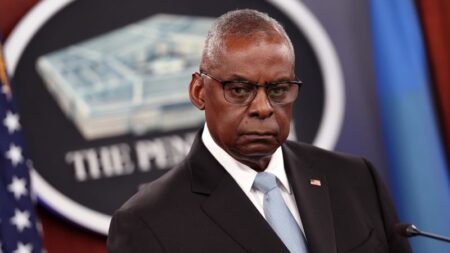In a powerful and timely message, Emad Shargi, an American who was wrongfully detained in Iran, has collaborated with the U.S. State Department to issue a grave warning to all U.S. citizens: avoid traveling to Iran “under any circumstances.” Shargi, along with other former detainees, is calling for those who had plans to visit the country to reconsider and cancel their trips immediately. This urgent advisory comes after a series of unsettling events in Iran, emphasizing the current heightened risks associated with visiting the nation.
Shargi was one of five Americans released in September 2023 as part of a broader agreement between the United States and Iran. His unfortunate experience of spending over five years in an Iranian prison serves as a chilling testament to the risks faced by Americans who venture to the country. His first-hand account of his harrowing ordeal aims to deter others from potentially facing a similar fate.
In a video shared by the State Department via X (formerly Twitter), Shargi openly expressed his grave concerns regarding travel to Iran. He reminded viewers that despite a desire to reconnect with family and loved ones, the risks associated with arrest and imprisonment by the Iranian authorities are extraordinarily high. “Nothing is worth being tortured for and spending years of your life in a filthy, dark Iranian jail cell,” he poignantly stated, urging anyone considering travel to heed his warning.
Additionally, Shargi reflected on his personal experiences, recalling how he traveled to Iran in 2018 to visit family and was subsequently detained on unfounded espionage accusations. “I know this because it happened to me,” he affirmed, underlining the unpredictability of such dire situations. His compelling narrative serves to illustrate that anyone, regardless of their background or intentions, could become ensnared in the Iranian regime’s dubious legal system.
He stressed that prior to his own wrongful detainment, he believed it was unlikely such events would happen to him. He thought, “This surely won’t happen to you. These things happen to people who have done something wrong, who have said things against the Iranian regime.” Emad’s chilling reflection on his misplaced confidence serves as an essential lesson for others, especially those with Iranian heritage. In his candid warning, he made it clear that having Iranian roots does not guarantee immunity from persecution; rather, it could increase one’s likelihood of being viewed as a political pawn by the Iranian authorities.
Shargi’s cautionary appeal came amid a renewed campaign reinforcing existing advisories against American travel to Iran. This warning is particularly poignant given recent escalations in conflict between Israel and Iran, alongside unprecedented U.S. military actions targeting Iranian nuclear facilities. The situation amplifies concerns over the safety of U.S. citizens, especially those identifiable as Iranian-American.
Adding to the urgency of this situation, a spokesperson from the State Department emphasized that Tehran does not acknowledge dual nationality but may pursue dual nationals due to their perceived affiliations with the United States. The advisory further cautions that “Iranian authorities routinely delay consular access to detained U.S. nationals,” often denying assistance to dual Iranian-American nationals entirely.
With no American diplomatic presence in Iran, U.S. citizens find themselves in precarious situations, relying heavily on Swiss officials for checking on American detainees. The conditions are dire, and, as Special Envoy Adam Boehler aptly noted, the risk of wrongful detention or state hostage-taking is even more significant for Iranian-Americans, with many having faced unjust detention under false charges, subjected to psychological torture, and in extreme cases, even sentenced to death.
For those who still feel compelled to visit Iran despite these warnings, the State Department offers stark and dire advice: leave DNA samples for loved ones and consider drafting a will. This somber recommendation emphasizes the seriousness of the situation and highlights the potential for extreme adverse outcomes for travelers to Iran. In light of these dire conditions, the collective message from Shargi and the State Department is clear: prioritize your safety by avoiding travel to Iran.











